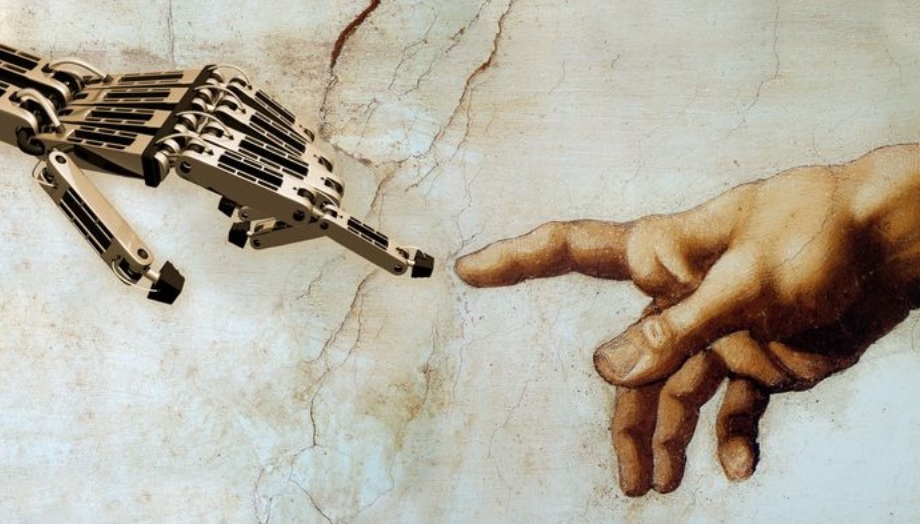Harmonising Science and Faith
Reflecting on our Sunday Readings with Archbishop Emeritus John Ha
Jul 07, 2023

14th Sunday of
Ordinary Time (A)
Readings: Zechariah 9:9-10
Romans 8:9, 11-13;
Gospel: Matthew 11:25-30
Learned people are those who have knowledge. Their knowledge comes from their learning; that is why they are called learned. Learning is a process of picking up lessons from sources of all kinds: creation and nature, people around, life’s experiences, schools, all fields of sciences, academic resources, and so forth.
Whatever the sources of knowledge, all of them derive from one common origin: God. He communicates knowledge in myriads of ways, even those that seem to be totally from human efforts. For sure, this is a declaration of faith. Unfortunately, however, there are negative attitudes towards faith.
Two are singled out for mention. The first is that Science does not need God. Science is no longer Science if God has to be brought into the picture.
The second is a corollary of the first: divine revelation cannot, and must not be accepted since it cannot be scientifically proven or its claims are unscientific. These negative trends enunciate the strong belief that Science and Faith are unbridgeable poles.
In today’s Gospel, Jesus addresses the issue in His prayer to the Father. On the surface level, He seems to be endorsing the strong belief behind the negative attitudes singled out above, but in favour of revelation. For He thanks His Father “for hiding these things from the learned and the clever and revealing them to mere children.” He reiterates, on grounds of the mutual knowledge between Him and the Father, that He Himself reveals His Father to those of His choice. These “children” and people chosen by Him are those open to revelation. Those who rely on their own knowledge are excluded.
If this was Jesus’ meaning in His prayer, He would clearly be very exclusive. His whole mission would be very lopsided, partial and sad. A fundamentalist interpretation of Jesus’ prayer from the standpoint of Faith and Science being irreconcilable would be to take the “learned and clever” to represent scientists while “mere children” to refer to people of faith. But happily, Jesus’ mission was inclusive and universal. He had come to save all humankind. No one was, is and will ever be excluded.
What did Jesus mean by “these things” that the Father has revealed and the “mere children” He has revealed them to? Jesus’ meaning must necessarily have to do with all that He had come into our world to do. His call at the very start of His public ministry was: “Repent, for the kingdom of heaven is near at hand” (Mt. 4:17). His entire ministry, all that He taught and did, was about the kingdom of heaven. His call was meant for everybody. Thus “these things” must necessarily refer to Jesus’ ministry. He proclaimed the coming of the kingdom of heaven and demonstrated His authority through the miracles He worked. These miracles were signs of the dawning kingdom. He called all to the kingdom. Their response was to “repent”, to turn away from sin and turn back to God. It amounted to a radical change of attitude and lifestyle – from indifference to God or unbelief in Him to taking Him seriously in life.
Vis-à-vis Jesus’ call to repentance to enter the kingdom of heaven, “the learned and the clever” refer to those who choose to disregard God. They think that their knowledge is self-acquired and makes them self-sufficient. For they are convinced that it empowers them to lead a successful life.
On the contrary, “mere children” and those “to whom Jesus chooses to reveal the Father”, are those who are willing to accept the kingdom of heaven Jesus proclaimed and demonstrated with signs. The kingdom of heaven belongs to the divine realm and God the Father sent Jesus into our world to offer it to all humankind.
Jesus’ invitation in the second part of the Gospel offers a way to harmonise Science and Faith: “Shoulder My yoke and learn from Me, for I am gentle and humble in heart.” Jesus is God, the source of all creation and knowledge. In His humility and for our salvation, He became Man and subjected Himself totally to human conditions and limitations as well as to the laws of nature, and thus, to Science. He had to learn and He did learn both religious and secular sciences. But at the same time, He was always open to His Father, daily discerning and doing His Will so that He could reveal Him and His Will to people.
In Jesus, revelation and Science coincided and worked in harmony, because His Father was the source of both. One evidence of this is found in Jesus’ parables. There, Jesus used knowledge from natural science to convey realities about the kingdom of heaven. Those who accept Jesus’ offer of the kingdom will “find rest for their souls”. That is because in the kingdom they will be with God. The great St Augustine understands Jesus’ offer very well when he affirms, “My soul will be restless until it rests in God.”
The “learned” in today’s Gospel can become “mere children” by learning from Jesus. Their repentance consists in becoming “humble in heart” and making room for divine revelation amidst their scientific pursuits for knowledge. Faith and Science are not opposed to each other. Faith keeps Science on course as its focus on God serves as a constant reminder that He is the source and goal of all knowledge.







Total Comments:0